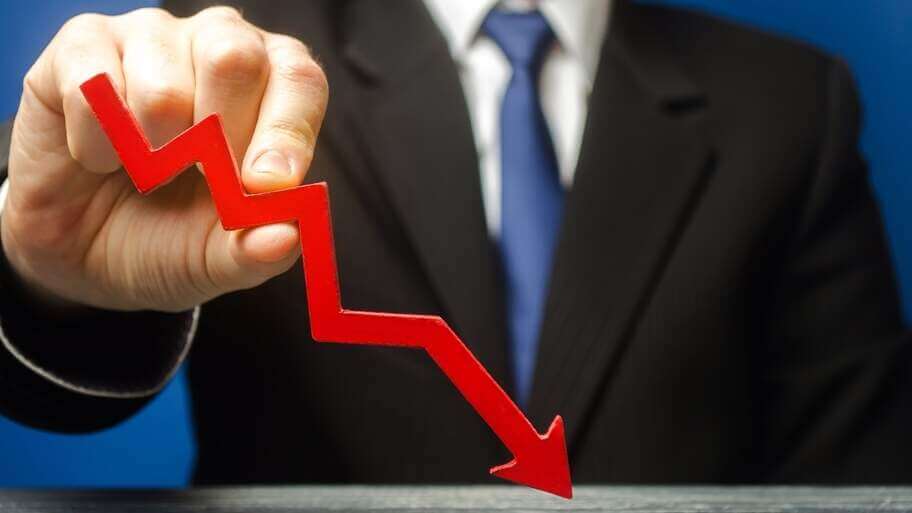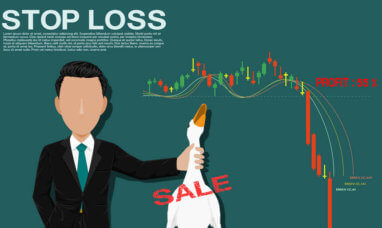A common trait shared between many of the most successful investors in history is a willingness to be contrarian. Sometimes even when it’s time to start investing in a crisis.
Warren Buffet is often credited with the phrase, “be fearful when others are greedy, and greedy when others are fearful.”
Similarly, Baron Rothschild is credited with the phrase, “the time to buy is when there’s blood in the streets.”
Both of these infamous quotes reflect a central idea. The idea is that it’s valuable to go against the grain. More specifically, markets are influenced by popular currents of fear and greed. Keeping a cool head and going against these currents can yield enormous profits.
As of writing, the most recent economic crisis was the 2020 stock market crash. On the surface, this event seems like it was a disaster for stock market investors. In reality, this crash generated massive fortunes for investors who were able to capitalize on market volatility.
Economic crises are inevitable and not always certain to predict. You may find yourself wondering what are reliable predictors of economic and financial crises? While there are some they are not always constant.
The average business cycle lasts for 67 months, and this means that a recession will occur, on average, every 5 years. The 2020 stock market crash was simply another step in this repetitive cycle.
Guide to Investing in a Crisis
Let’s explore how a crisis presents opportunities in the stock market.
Volatility and Profit
The most basic dynamic of stock investing involves long and short positions. Both approaches are a means of profiting when the market moves upwards or downwards. This is also referred to as directional trading.
A long position involves buying and holding stock in hope that it rises in price. A short position involves borrowing stock, selling it, buying it back at a lower price, and pocketing the difference. A short position is a bit more complicated, but both revolve around the same idea.
The key concept is that both approaches benefit from strong variations in price, also known as volatility. The more a price changes, the more an investor could gain or lose. A market crash actually presents the highest possible volatility in the stock market.
An Example of Market Crash Volatility
A famous example of capturing crisis volatility is of the hedge fund manager, Michael Burry.
Manager of Scion Capital, Burry had previously managed to secure a 55% gain for his investors during the 2001 collapse of the dotcom bubble. This occurred during a year when the stock market took an 11% loss.
Burry was able to foresee that many of the newly listed internet companies had shares that were greatly overvalued. As stocks soared during the late 1990s, these short sellers were able to avoid the general sentiment of greed and mania.
His most famous move in the market was to short the subprime mortgage crisis of 2008 after convincing large investment banks to sell him short positions in the real estate market.
Many housing loans from that era were marketed with “teaser rates” that pulled in mortgage buyers. When the original advertised rate expired, the debtor was burdened with unaffordable interest. Burry was able to predict that these loans would default and the housing market would collapse.
For his short position, also known as “the big short,” he made $100 million in commissions and $700 million for his investors. The sheer volatility of the market crash allowed his investors to make such a large sum in such a short amount of time.
The 2020 Stock Market Crash
The stock market crash of 2020 led to an unprecedented wave of economic devastation worldwide, a crisis that continues to impact the economy. Unemployment skyrocketed along with homelessness and poverty.
However, a small group of wealthy investors has managed to collect record profits from the immediate recovery, or reversion, of the equity market.
Just as the market moves in natural cycles, a strong movement away from the average, or mean, often leads to an equally swift recovery, or mean reversion. In other words, a major market crash is immediately followed by major gains as equilibrium is restored. So investing in a crisis can have strong returns.
Mean reversion mostly applies to extreme changes in the market, such as a market crash. The term mean reversion is also associated with ETFs, or mean reversion ETFs. As of writing, the S&P 500 has made a massive 35.84% return in the current year-to-date. This blows the average rate of 10% to 11% out of the water, and it’s thanks to the market crash.
Most of this equity ownership is concentrated in the hands of a small portion of the population, and the crisis has decreased an already shrinking number of people with equity in the stock market. The truth is that most people, in general, don’t have equity in the stock market, and if they do it’s likely indirectly through employer benefits like a 401(k) retirement account.
In short, a market crash presents very lucrative opportunities in the stock market for bears who can foresee the crash and for bulls who are willing to scoop up discounted shares immediately afterward.
Timing Reversion
Predicting a market crash or economic crisis is no simple task. This is typically the work of financial economists, hedge fund managers, and investment bankers. However, once a market crash occurs, it becomes very obvious to the public.
It is much easier to time the reversion of a market crash than to foresee the crash in the first place. Timing the reversion simply requires patience, waiting for the market crash to reach its lowest point, and investing after clear signs of a bullish general trend.
For the most recent market crash, this would be late March of 2020 when the S&P 500 made a 14% recovery after the record 34% crash. This was the beginning of a bull run that has never before been witnessed in history.
A mean reversion of this scale is appropriate, as the 2020 market crash was the single largest in stock market history. However, much like previous recessions, the market must once again experience a crisis after a period of recovery and expansion.
In other words, a new recession is always on the horizon. A stock investor today may be able to catch the tail end of this bullish run, but they will not catch another major mean reversion until the next crisis occurs.
How to Enter the Stock Market
Entering the stock market is as easy as registering an account with a retail broker and getting approval to buy and sell shares through an investment account.
However, actually making a profit is an entirely different matter. For most, a conservative long-term value investing strategy will reap the most benefits.
The easiest and most basic approach to this strategy is to purchase shares in the S&P 500 and other stock index funds that give a general and diversified exposure to the stock market.
Now may not be a bad time to buy now while stocks last, but it’s important to keep an eye on the general trend and sell your investments before a market crash can wipe out your profits.
If you have the patience to wait for the next economic crisis, then purchasing shares immediately after the crash can yield enormous profits. Investing in a crisis can be difficult but also immensely rewarding.
Featured Image: Twenty20








